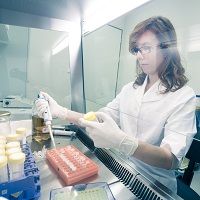Successful Non-Narcotic Approach to Chronic Pain Relief
Potentially addictive opioids may be avoidable thanks to a new treatment pathway for chronic pain and other painful conditions by focusing on genetics.

Potentially addictive opioids may be avoidable thanks to a new treatment pathway for chronic pain and other painful conditions by focusing on genetics.
Researchers from Boston Children’s Hospital acknowledged the lack of non-medication driven treatments for chronic pain. Using “reverse engineering”, they were able to identify that the production of a particular protein regulates pain sensitivity.
“Most pain medications that have been tested in the past decade have failed in phase II human trials despite performing well in animal models,” one of the co-senior authors Clifford Woolf, MD, PhD, said in a news release.
In 2006, the team found that about 2% of the population has gene variants for GTP cyclohydrolase (GCH1) which is associated with a decreased risk of chronic pain. Those with this GCH1 variation produce less of the protein tetrahydrobiopterin (BH4). This knowledge raised the ultimate question.
If there was less production of BH4, would individuals experience less pain? Not only is the answer yes, but the researchers were able to prove it in human biology using an animal model.
According to the study published in Neuron, mice with severed sensory nerves were made to mimic human responses. The first group were engineered to produce excessive BH4 even without an injury. The second was altered to make it genetically impossible to produce the protein by blocking a key enzyme in BH4 production with the drug sepiapterin reductase (SPR).
“We now show that excessive BH4 is produced in mice by both axotomized sensory neurons and macrophages infiltrating damaged nerves and inflamed tissue,” the authors wrote.
The mice with excess BH4 experienced increased pain sensitivity and the ones without had less pain in the sensory nerves following peripheral nerve injury. SPR inhibited hypersensitivity from the nerve injury but did not affect nociceptive pain.
The team noted that BH4 is active throughout the body — including in the brain and blood vessels – and SPR treatments would not aim to stop production of the protein altogether. However, the study demonstrated that it is possible to minimize production of the protein to reduce pain without causing neural or cardiovascular damage.
“[Our findings] also show that human genetics can lead us to novel disease pathways that we can probe mechanistically in animal models, leading us to the most suitable targets for human drug development,” Woolf concluded.